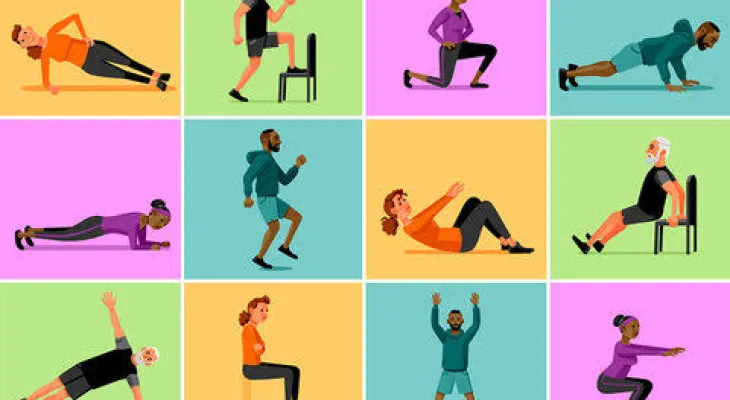
The Comprehensive Guide to Fitness and Exercise: Unveiling the Health Benefits, Getting Started, and Enhancing Your Well-being
In the pursuit of a healthier lifestyle, understanding the nuances of fitness becomes paramount. This comprehensive guide explores the intricate elements of fitness, debunking myths and providing valuable insights into the world of exercise.
Section 1: The Essence of Fitness
1.1 Defining Fitness:
Delve into the correlation between overall fitness and a reduced risk of chronic diseases. Uncover how improved fitness enhances functionality, mobility, and daily well-being.
1.2 Myths and Realities:
Challenge misconceptions about fitness, emphasizing that appearances can be misleading. Acknowledge the diverse forms of fitness, from ballet dancers to bodybuilders, underlining that there's no singular "look" for fitness.
Section 2: Components of Physical Fitness
2.1 Cardiorespiratory Fitness:
Explore the significance of VO2 max and its connection to overall health. Insights from experts like Abbie Smith-Ryan shed light on the role of cardiorespiratory endurance in daily tasks.
2.2 Musculoskeletal Fitness:
Dive into the world of muscle strength, endurance, and power, understanding their vital role in overall fitness.
2.3 Flexibility, Balance, and Speed:
Uncover the importance of flexibility, balance, and speed in maintaining a well-rounded fitness routine, as per the Physical Activity Guidelines for Americans.
Section 3: Types of Fitness
3.1 Aerobic (Cardiovascular) Exercise:
Explore the foundation of fitness through aerobic exercises like walking, running, and cycling. Understand the impact on cardiorespiratory fitness according to the American Heart Association.
3.2 Strength Training:
Highlight the role of strength training in improving mobility and overall functioning, especially as individuals age. Expert perspectives from Robert Sallis provide valuable insights.
3.3 Flexibility and Mobility:
Differentiate between flexibility and mobility, exploring their importance in healthy movement. Emphasize the need for balance training, particularly for older adults.
Section 4: Rest and Recovery
4.1 Importance of Rest:
Understand the crucial role of rest days in allowing the body to repair and strengthen after exercise. Dr. Sallis recommends incorporating low-intensity activities on rest days for optimal recovery.
Section 5: Health Benefits of Exercise
5.1 Physical and Mental Well-being:
Delve into the extensive benefits of exercise, from mood enhancement to improved sleep. Scientifically proven outcomes emphasize exercise's role in preventing chronic diseases.
5.2 Chronic Disease Management:
Explore how exercise contributes to managing various chronic conditions, including osteoarthritis, diabetes, and heart disease. Expert advice emphasizes the role of physical activity in promoting overall health.
Section 6: Recommended Exercise Guidelines
6.1 Exercise Duration and Intensity:
Highlight the recommended weekly exercise guidelines from the U.S. Department of Health and Human Services. Emphasize the importance of a balanced routine incorporating aerobic, strength, and flexibility exercises.
Section 7: Nutrition and Exercise
7.1 Pre, During, and Post-Workout Nutrition:
Provide valuable insights into fueling the body with adequate and healthy foods. Tips from experts like Jackie Dikos guide readers on what to eat before, during, and after workouts.
Section 8: Tips for Getting Started and Staying Motivated
8.1 Building a Sustainable Routine:
Offer practical tips for initiating and sustaining an exercise routine. Experts recommend breaking it up, increasing intensity gradually, and incorporating non-traditional exercises.
Section 9: Home Gym Equipment
9.1 The Rise of Home Workouts:
Explore the advantages of exercising at home and the plethora of online resources available. Expert recommendations guide readers on choosing suitable home gym equipment.

















